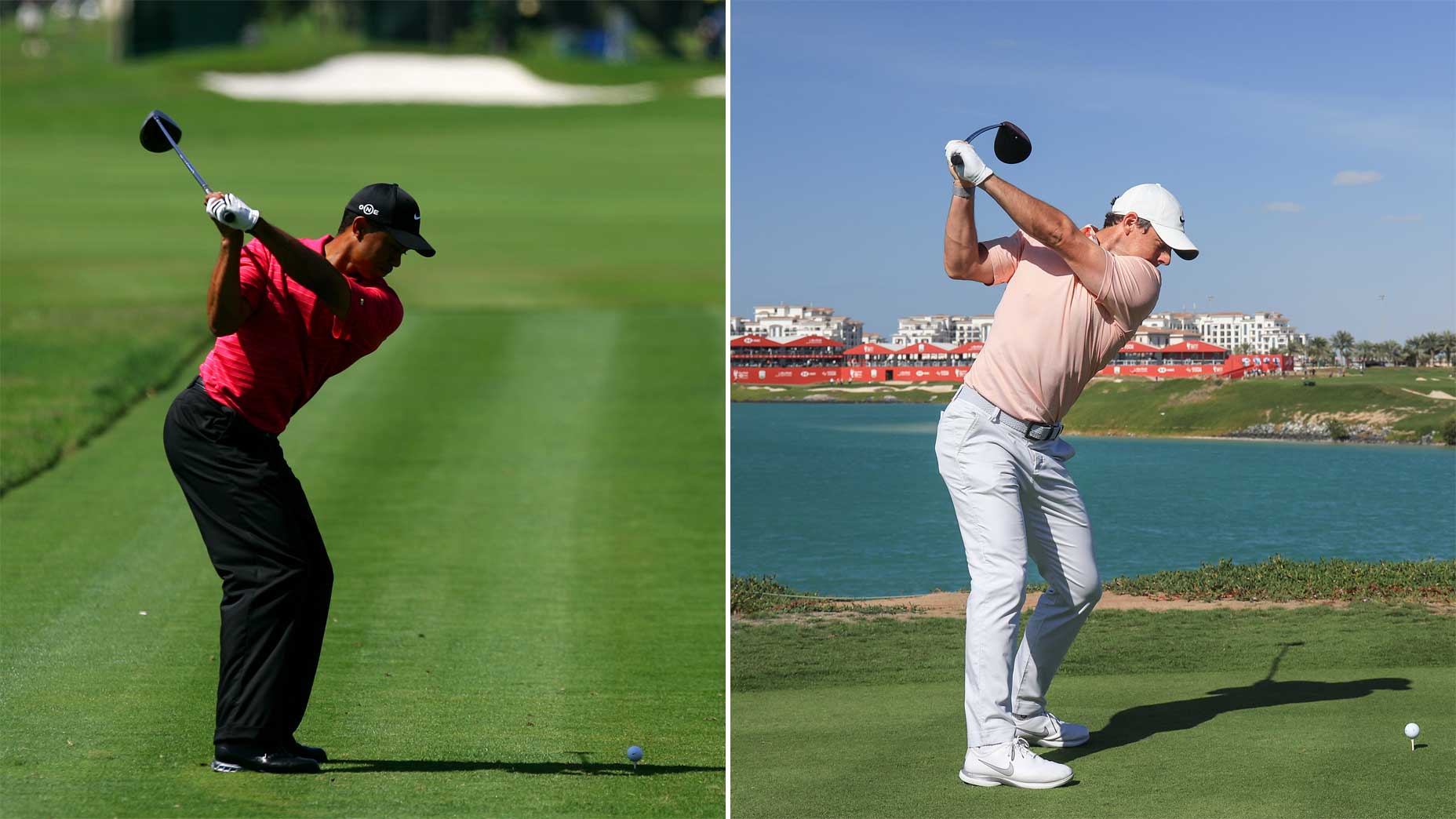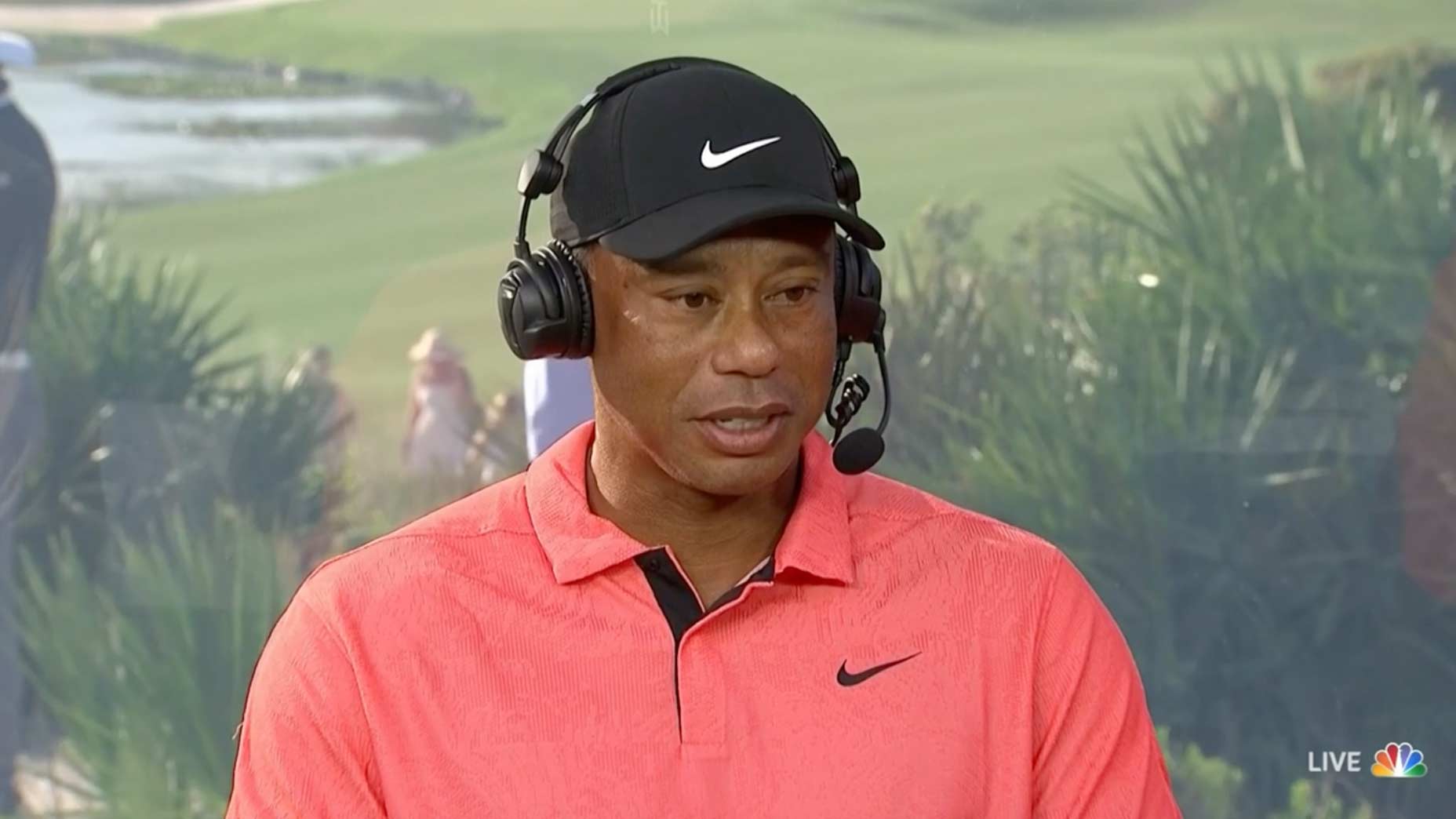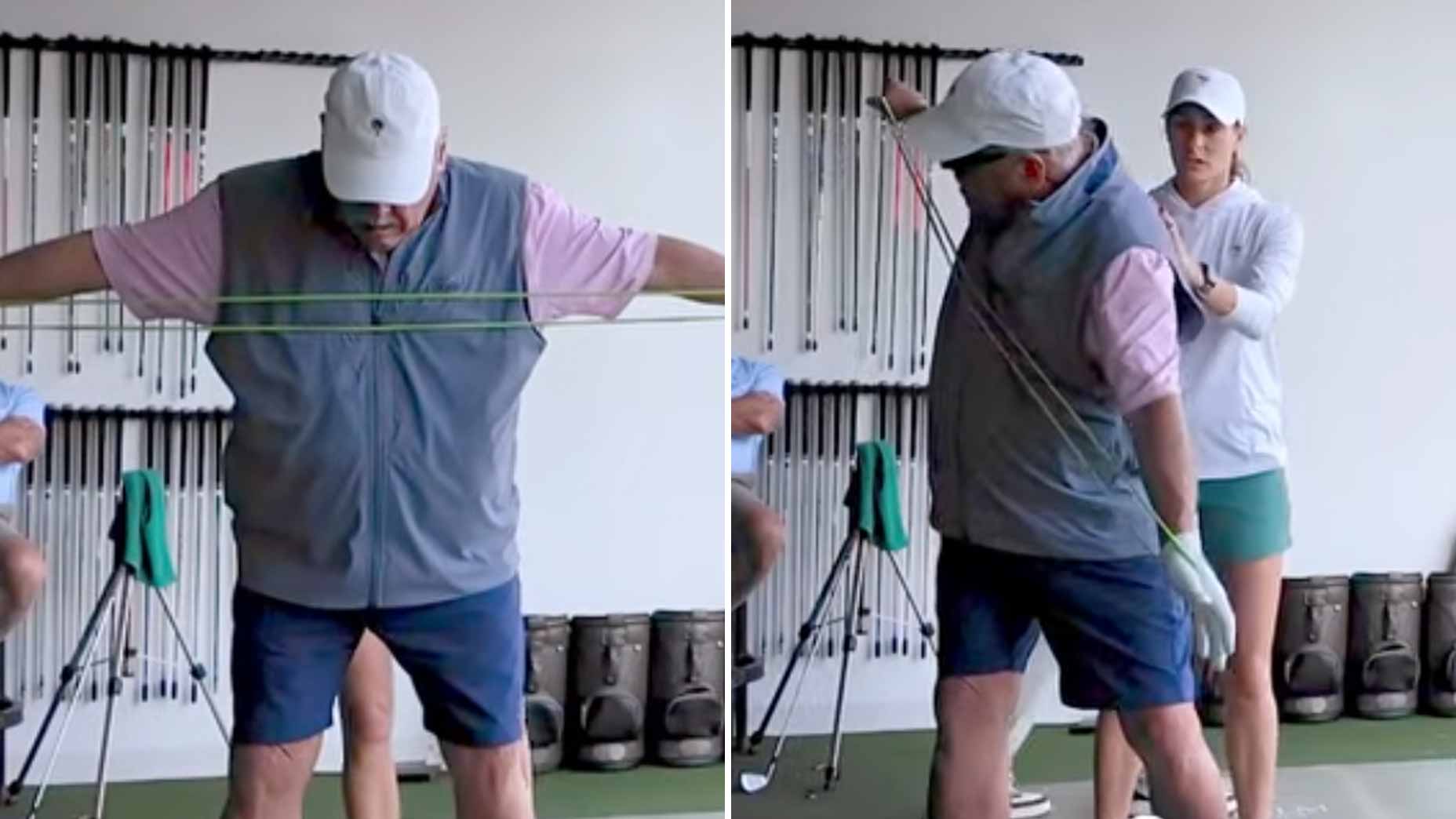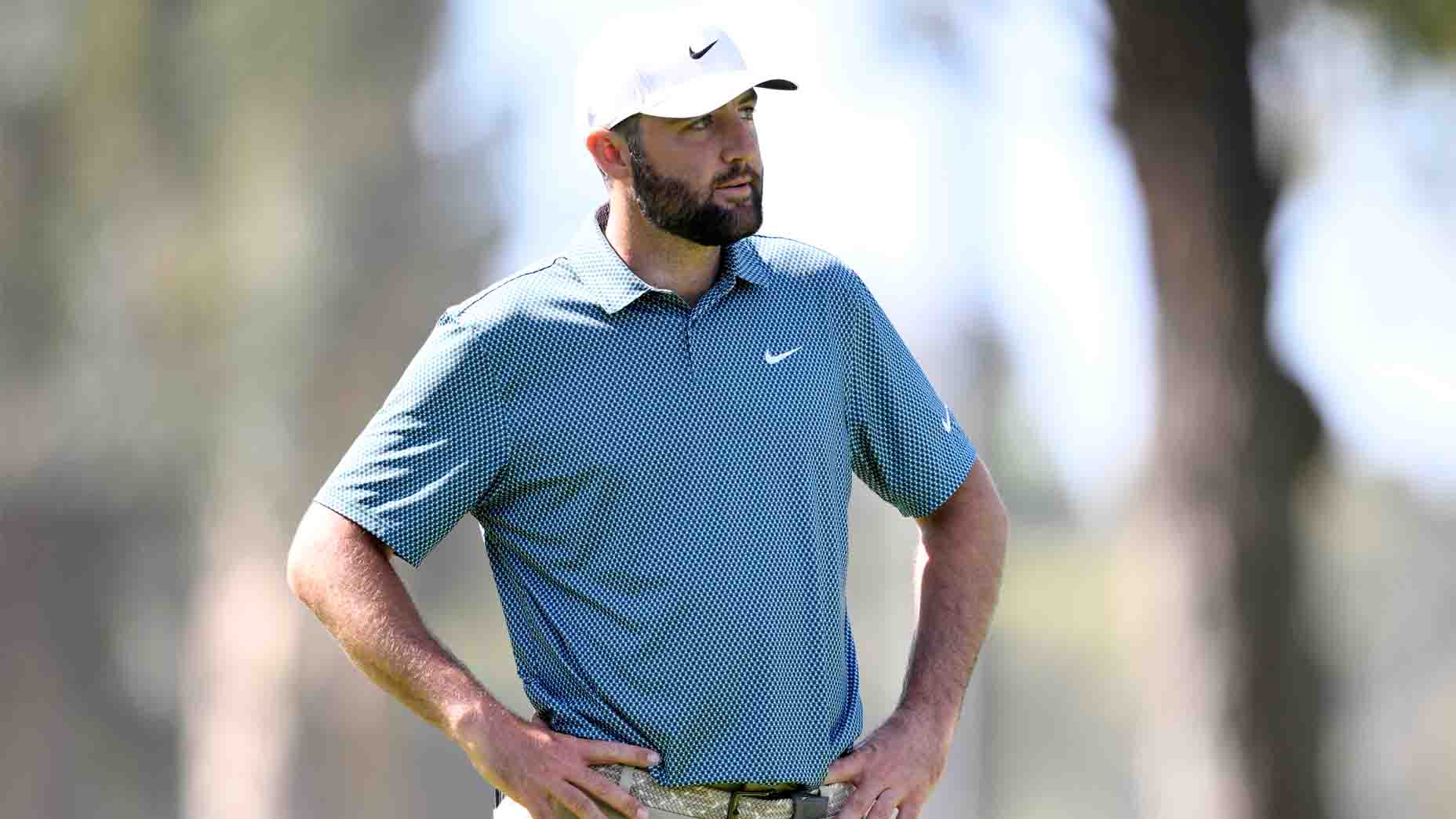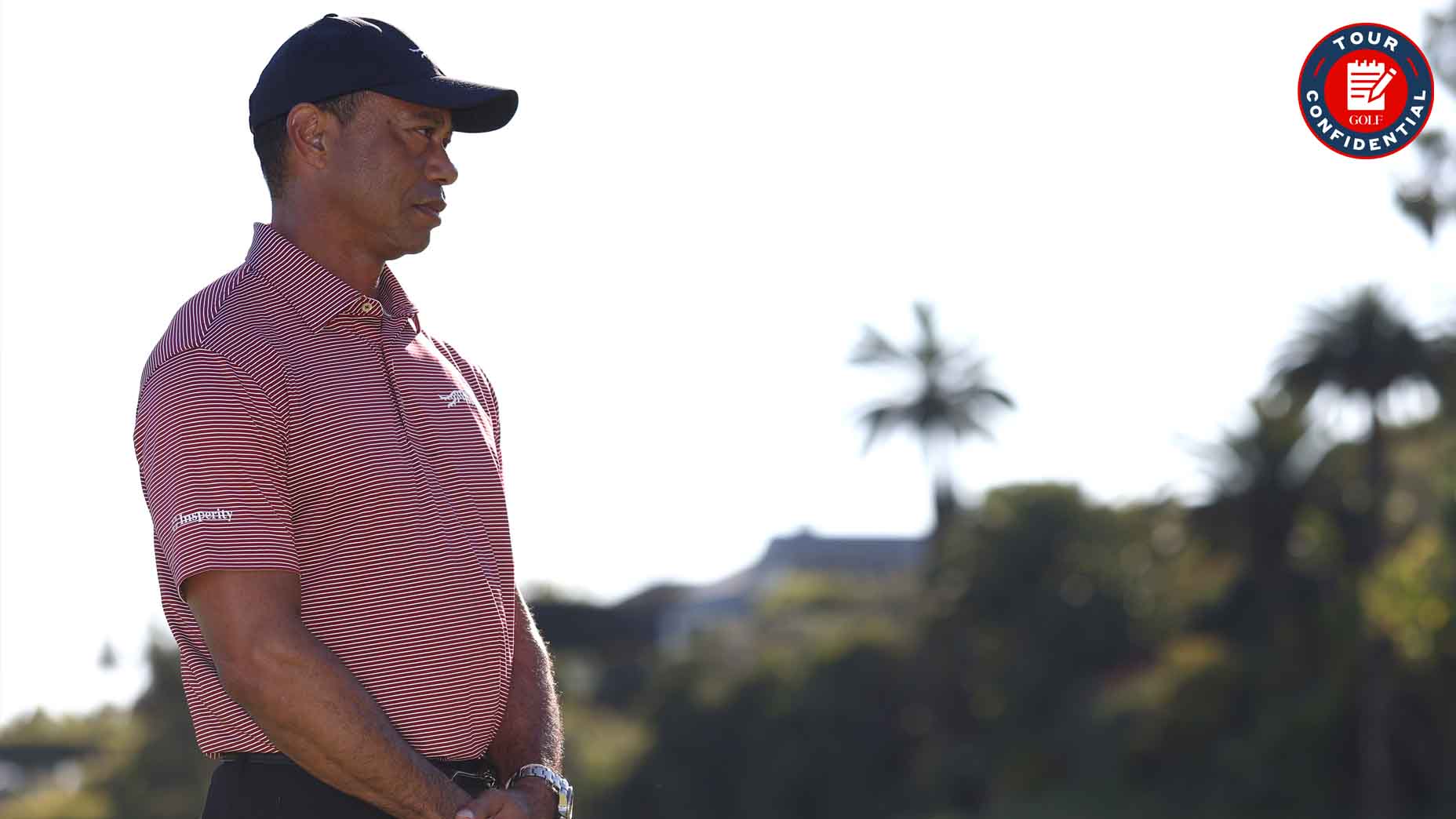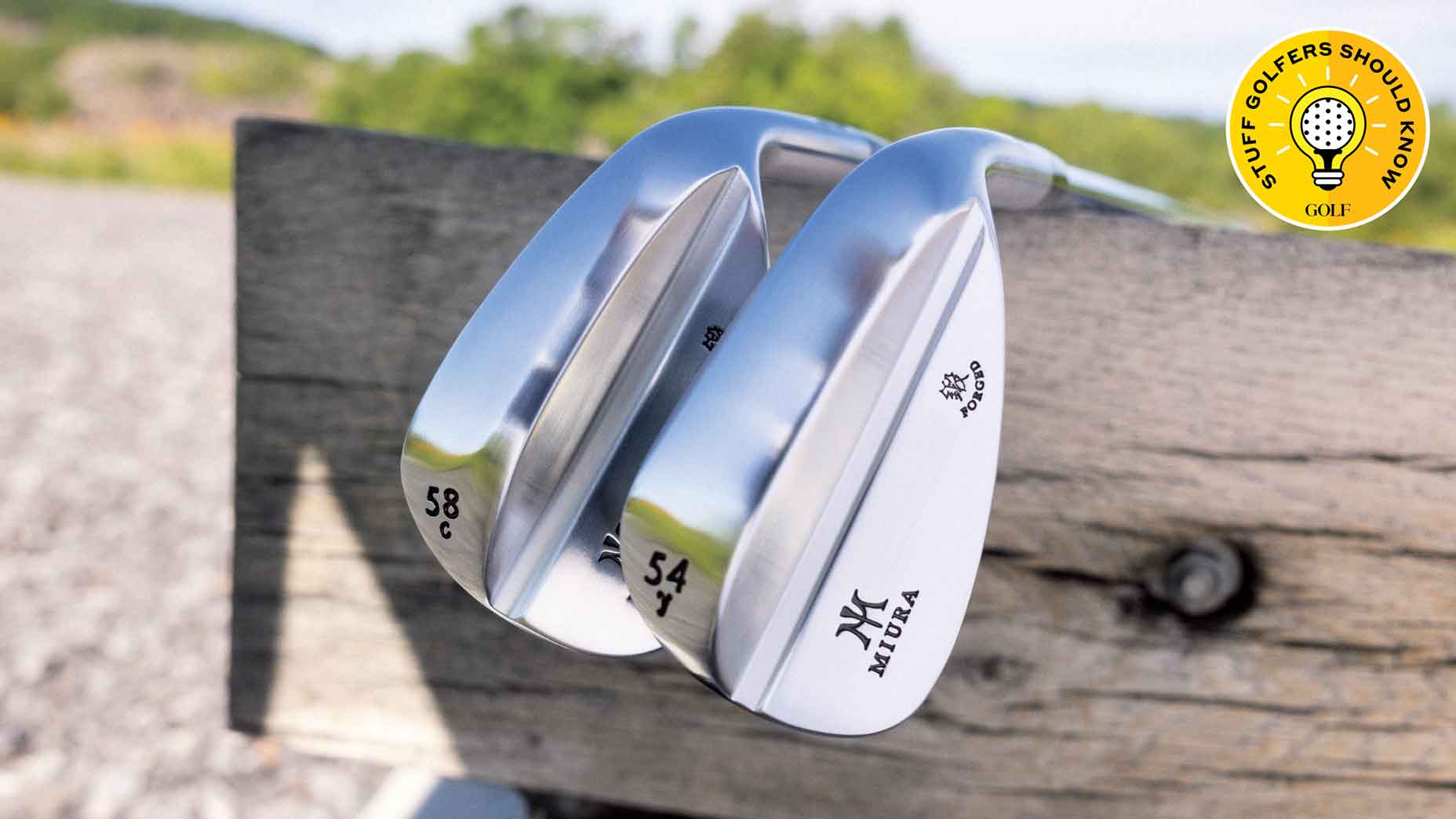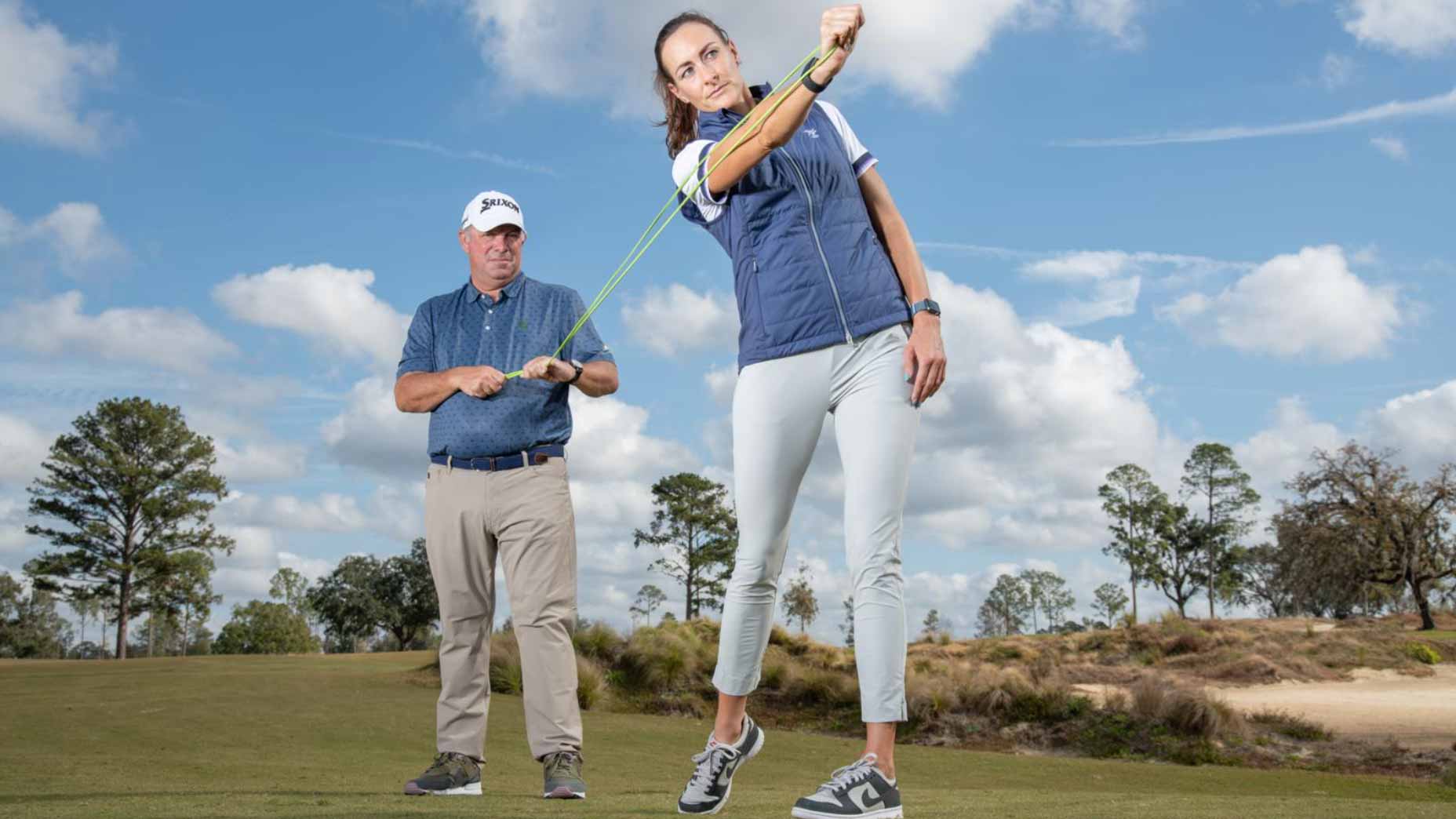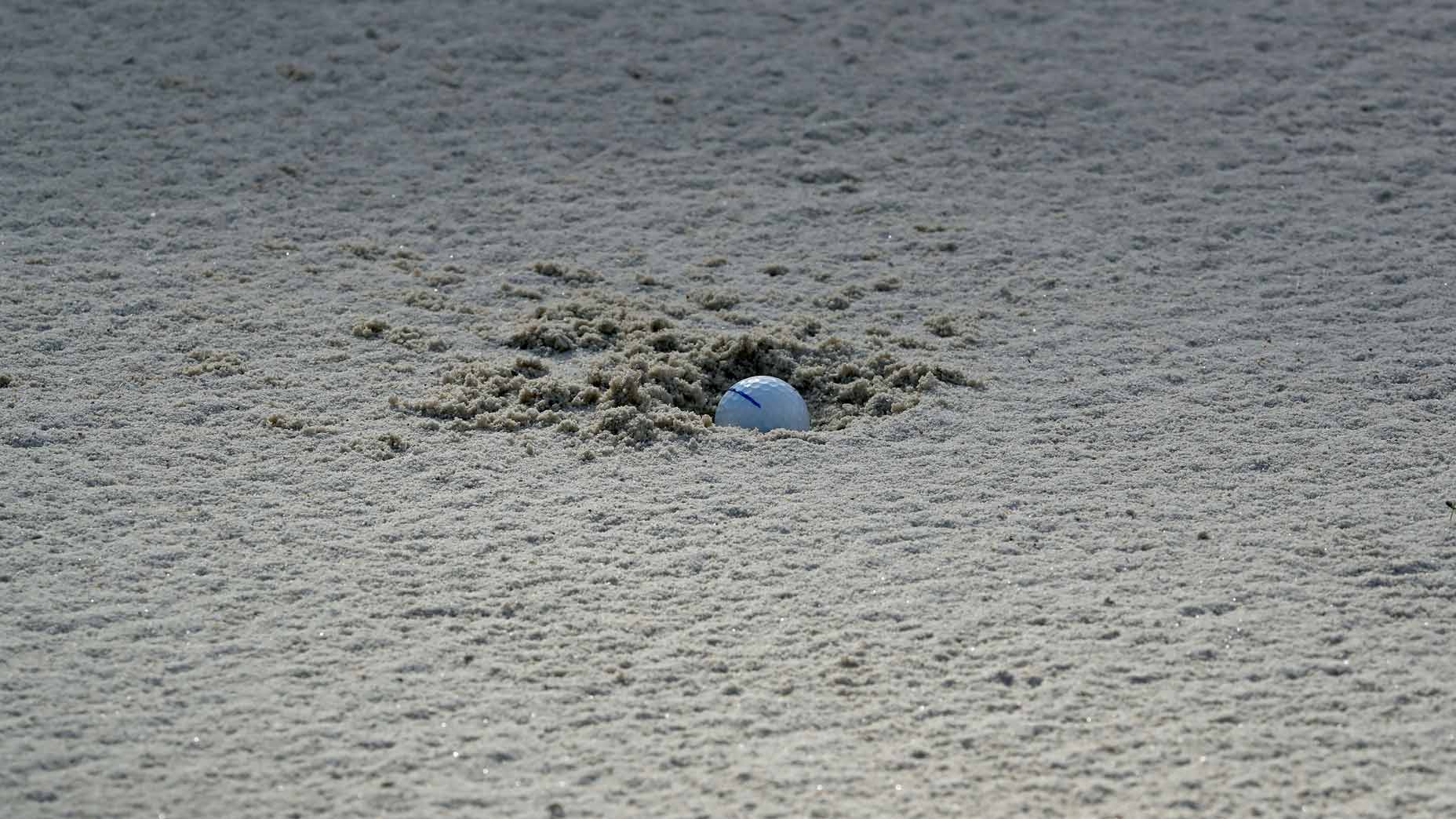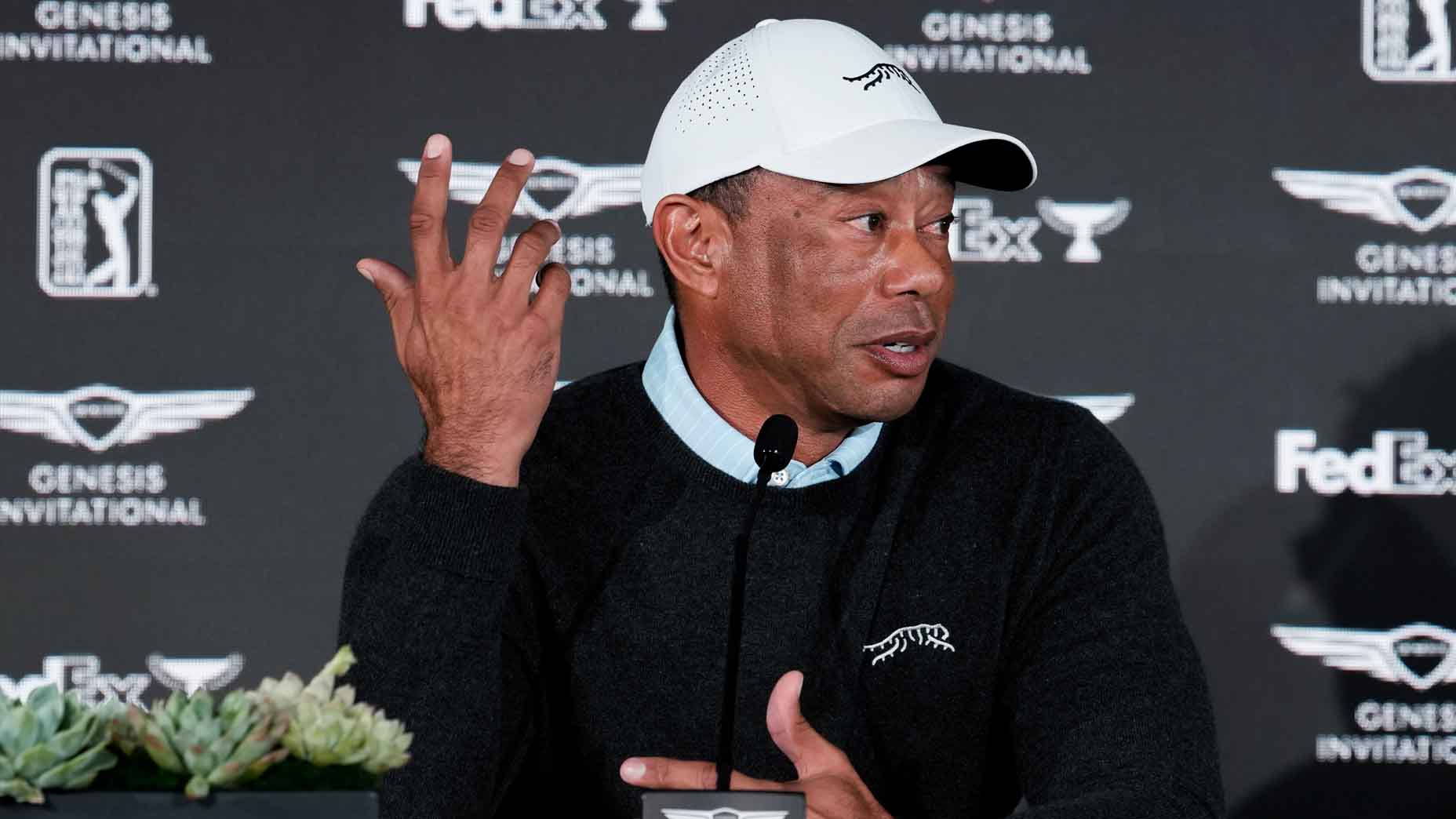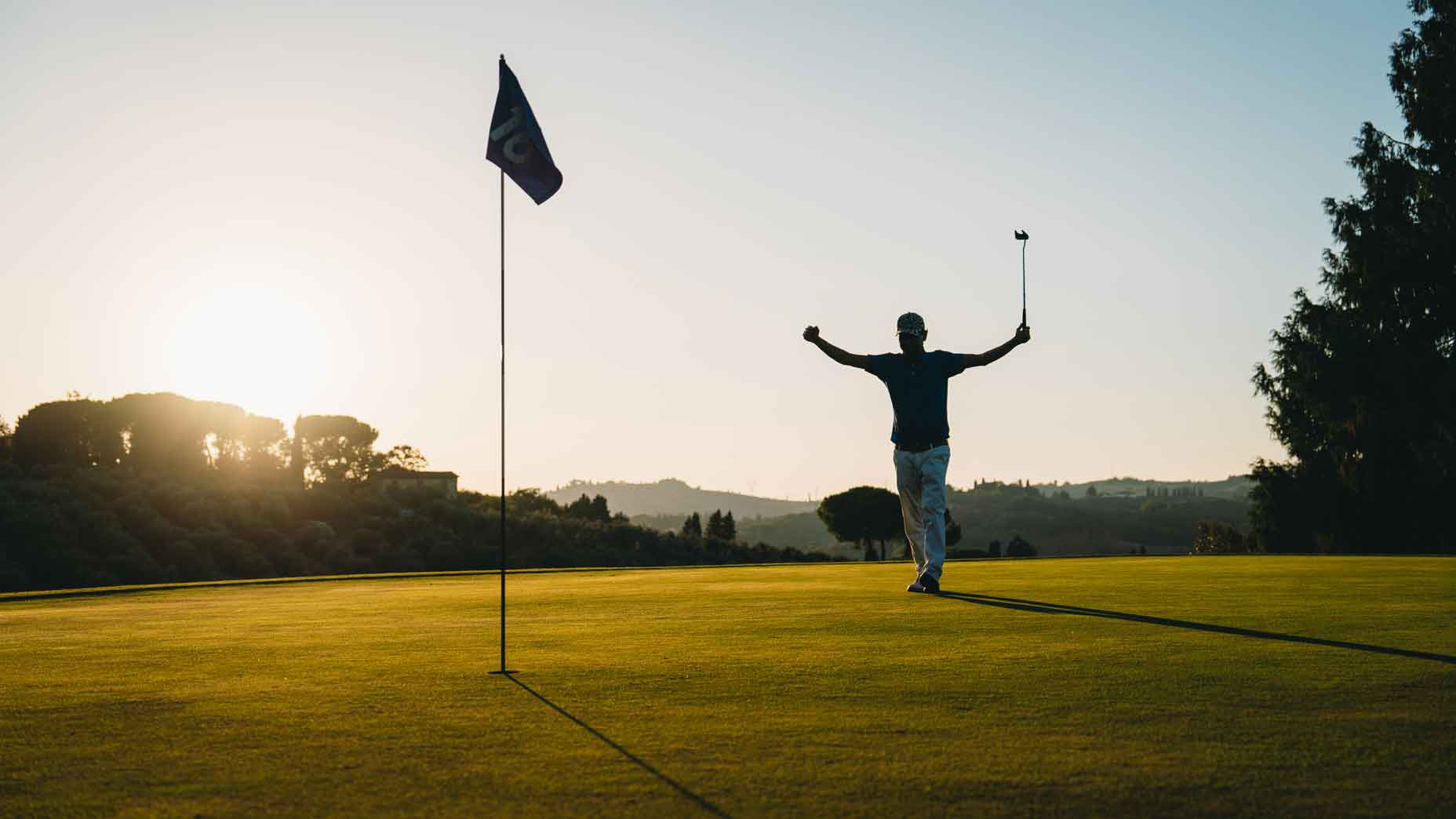Tiger Woods returned to the pro golf spotlight last week. No, he did’t play, but he still provided us with plenty of memorable moments.
Some good (his presser), some bad (his injured foot) and some heartwarming (putting lesson with an amateur). But perhaps the most intriguing moment of the came during his appearance in the booth on NBC’s broadcast. Specifically, the advice he has given Charlie.
“I told him, don’t copy my swing. Copy Rory’s,” Woods said. ““Have you ever seen Rory off balance on a shot? No. Not ever … You can swing as hard as you want on a shot, but you need to have balance.”
‘Don’t copy my swing’: Tiger Woods reveals advice for CharlieBy: Dylan Dethier
It was a fascinating bit of advice for his son, especially considering the cutthroat nature Woods displayed during his march to 15 majors. Peak Tiger seldom doled out praise for his competitors, but 2022 Tiger has mellowed.
The comment showed the gracious side of Woods that we’ve come to know in his second act. But it also showed something else: just how much respect and admiration Woods has for McIlroy’s swing.
With that in mind, we asked three GOLF Top 100 Teachers to analyze the two swings — Woods from his peak in the 2000s and McIlroy in the 2010s — to breakdown their respective actions. Both swings will be on display Saturday when Woods and McIlroy team up for the seventh edition of The Match.
THE TAKEAWAY
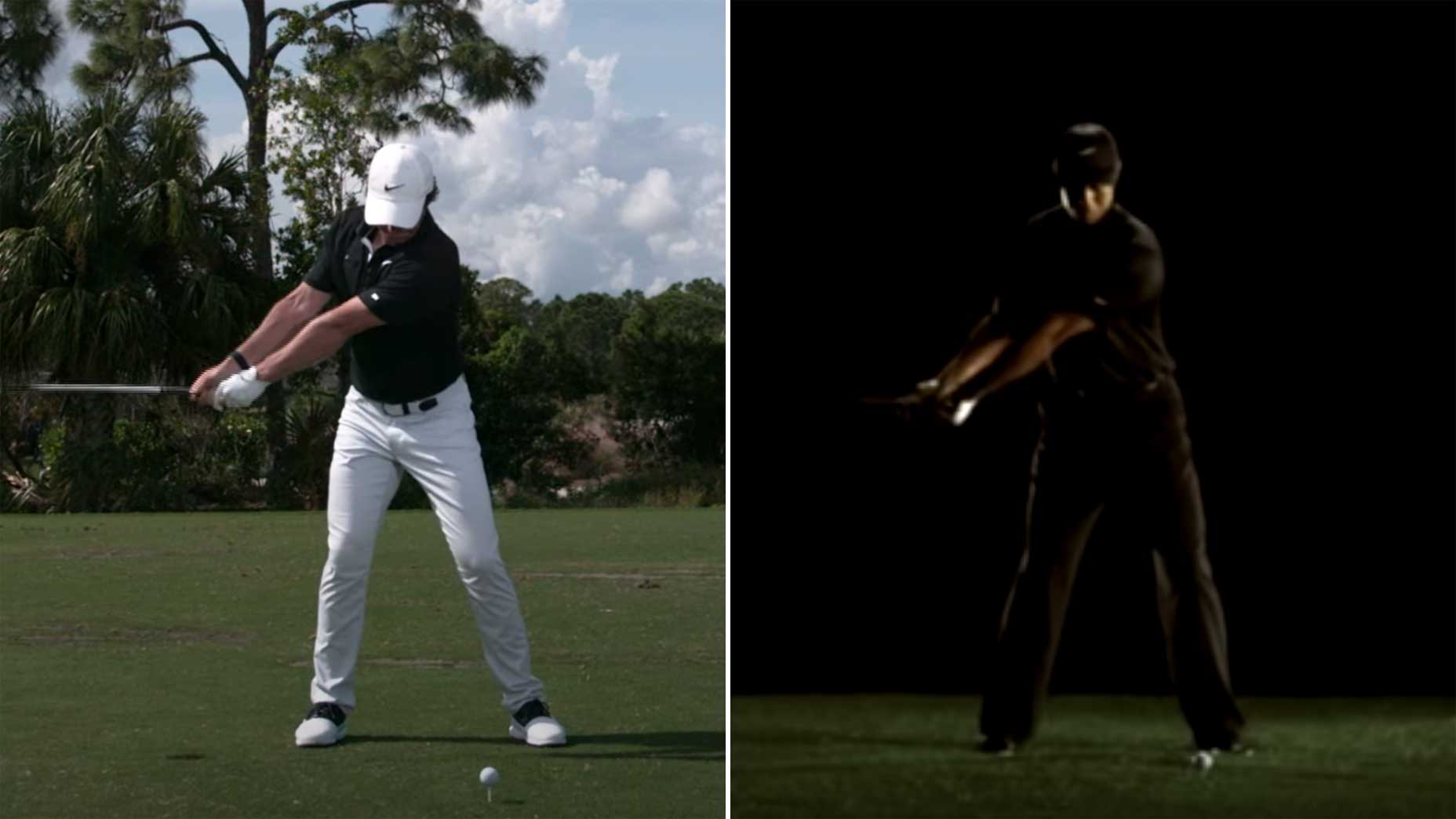
Jonathan Yarwood, IJGA, Hilton Head Island, S.C.: “First off, I’d say Tiger and Rory are in the same family of swings. They’re kind of cousins of each other, really. They’re very simple swings revolving around really strong, fast-moving cores. But at the start, Rory is a lot wider. I know he tries to get the club out in front of him in general. Tiger is a little bit more measured here, but they’re at similar positions overall. The clubhead is moving first, with the shaft parallel to the ground and on a great track early on. Both haven’t started turning their bodies too early, either.”
Brian Manzella, English Turn G&CC, New Orleans, La.: “Both of these swings are attempts to temper pretty hard right-to-left ball flights. And one of the things you do as an instructor to help with this is straightening out the takeaway to the point of exaggerating. The reason you do this is, if you take the club back that way, with a limited amount of rotation in the arms, you have to rotate a lot more in the next phase of the swing.”
Nick Clearwater, GOLFTEC, Denver, Colo.: “It looks like they’re trying to hit two different shots here. Tiger seems to be set up for more of a straighter shot in these swings. Rory seems like he’s trying to hit a high push, or a high push draw. Tiger, if he’s trying to hit the fairway, is usually trying to hit a tiny little cut with this swing.”
THE TRANSITION
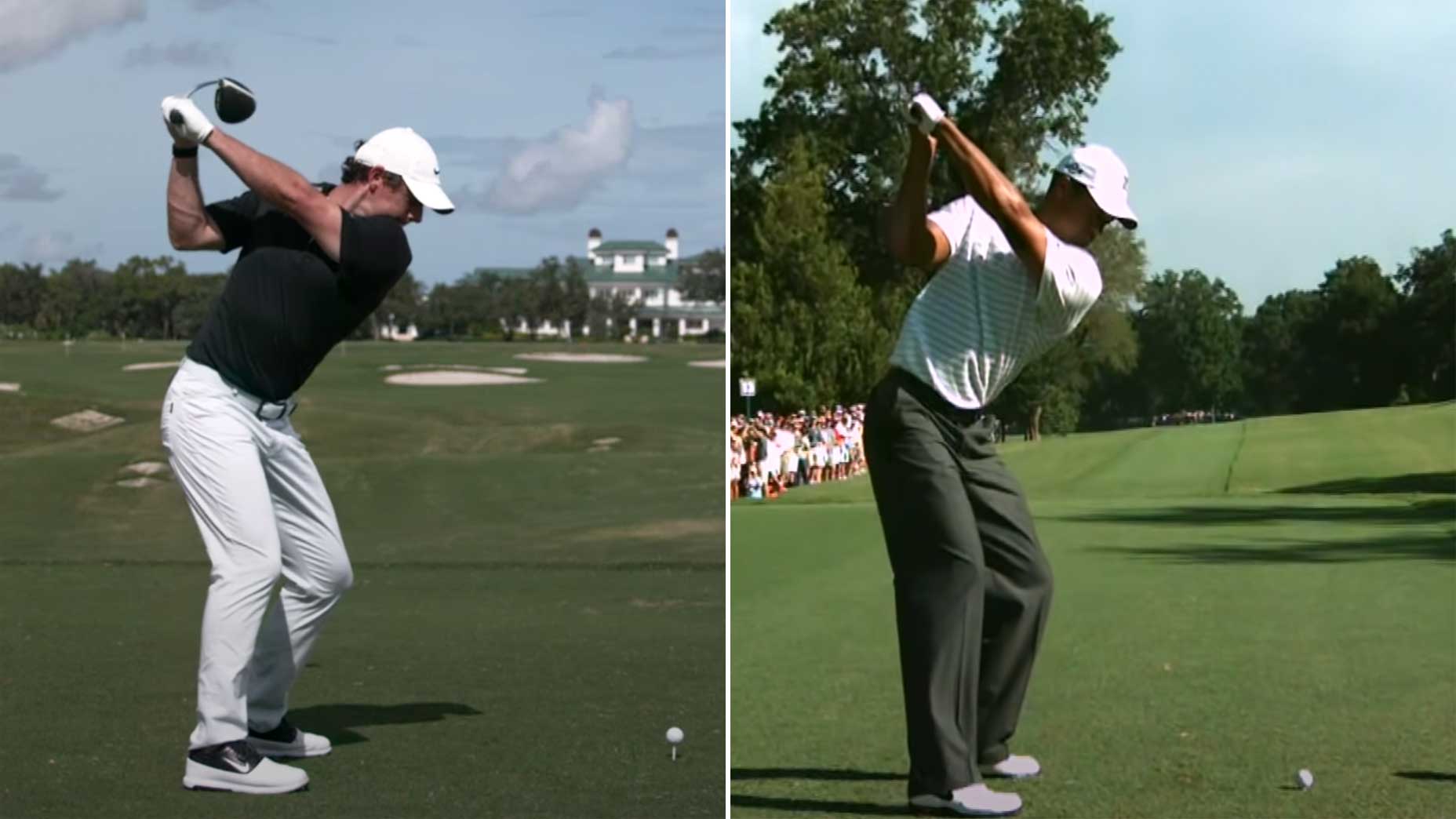
Jonathan Yarwood: “They’re both wound up really nicely, but what they both have, which all great players have, is that they don’t have an exact point at the top of the swing. They have a position in motion at the top. So when we measure them, there’s a movement of the mass and the pressure as they reach the top. Both of them are re-centering before they reach the top. Rory slides his body a little more than Tiger, but when you watch it in motion, you can see a really nice fluid change. This encourages the club to get shallow, which is why Rory’s swing is more shallow than Tiger’s, and which encourages him to drive it great.“
Brian Manzella: “The big difference here at the top of the backswing is that Rory is partially using the flatness of his left arm to let him cup his wrists a little bit at the top. Whereas Tiger is matching his grip to his clubface a little more, while Rory isn’t. Rory’s grip is stronger than Tiger’s.”
Nick Clearwater: “At the top of his swing, Rory’s left arm is probably the lowest on the PGA Tour, relative to the ground. And that is a really good position for amateurs as well. I always tell people to pick someone who hits the ball the way you want to. And while Tiger had a lot of success during his prime, but hitting 52 percent of his fairways in 2005 is not necessarily your perfect model for driving the ball well. He hit the ball really far and curving to the right, but for most amateurs, that’s not the best model for your swing. Compared to Rory, who’s hitting push draws that find the fairway over 60 percent of the time, is a really good person to pick.”
THE DOWNSWING
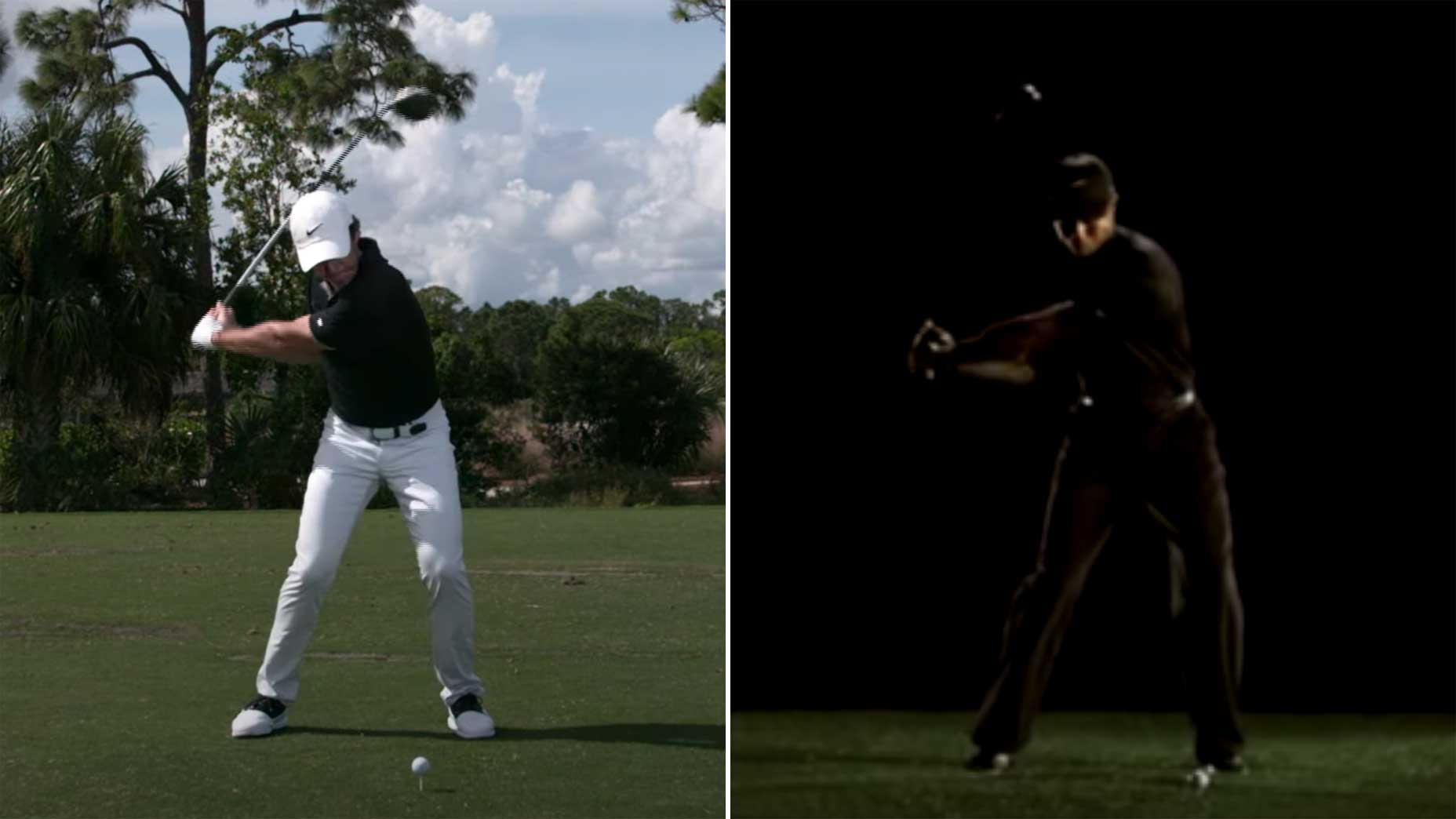
Jonathan Yarwood: “Halfway down is noticeably different. Technically, you’d say Tiger is in a better position here because Rory has got it very narrow, which is a reaction to his start, which is very wide. Being narrow on the way down is good if you can manage it, and dump that angle, because it creates a ton of speed. If you look at Tiger, his lower body is much more stable and his club is wider at that point, which for a lot of players is more desirable and more what we see.”
Brian Manzella: “Copying Tiger’s downswing from here is what I would recommend. If you have copy Tiger’s grip and then get to here on the downswing, you’re in a great spot. From here with Rory’s swing, most people would have a little more trouble hitting the ball straight.”
Nick Clearwater: “Because Rory’s left arm is lower at the top, you can see how Rory’s arm gets further behind him. His hips and shoulders are more closed to the target compared to Tiger’s which is just keeping his swing direction more in-to-out, which is one of the key components to hitting a draw.”
AT IMPACT
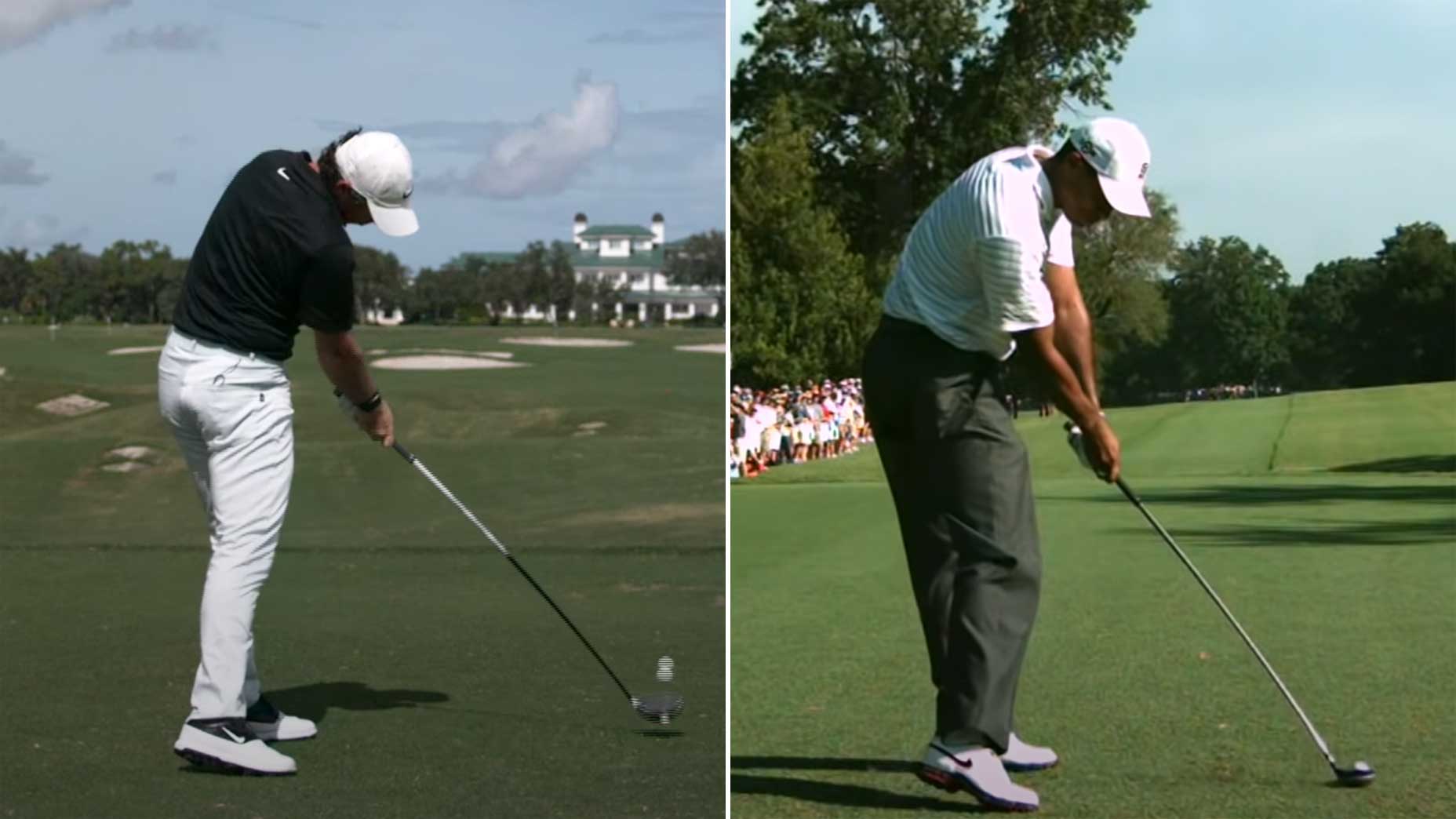
Jonathan Yarwood: “You can see Rory is just a little bit more dynamic here. He’s got more tilt and more side bend and his head has dropped back much more, which he’s got to do to get more width at the bottom. If his head were as stable as Tiger’s, he wouldn’t be able to dump the angle. Part of the matchup in the narrowness is the head going back as he approaches impact. Tiger has much less spine tilt at impact, because he didn’t have to move back as much since he was wider on the way down. Tiger’s is a more measured, simpler look, but you probably won’t hit it as far. Rory’s is a lot more dynamic and athletic, and when it’s timed up properly, you’ll hit it miles.”
Brian Manzella: “At impact, I notice that they have two different releases. Most modern teachers would like Rory’s post-impact position to Tiger’s. But for most regular golfers, I’d recommend they copy what Tiger does over Rory. Most people, if they tried to copy Rory, would hit the ball more to the right. If you’re a regular golfer, there better be a damn good reason you’re trying to copy Rory’s swing, because most people can’t do it.”
Nick Clearwater: “At impact, Tiger’s left leg is a little extended, or even hyperextended, which is a great way to swing fast, but not necessarily the best avenue to take if you want to hit draws into the fairway. Rory is using a few more qualities in a swing that will help you hit the ball far, but also draw it, which is what a lot of golfers need to do.”
CONCLUSIONS
Jonathan Yarwood: “When we look at our own swings, we always see the faults. When Tiger is looking at his own swing, he’s looking at it quite critically. But when he’s looking at Rory, he’s looking at the flow of it rather than the flaws in it. Beauty is a little bit in the eye of the beholder. Tiger also mentioned how much he admires Rory’s balance. And I’ve never seen Tiger struggle with balance, so I thought it was interesting he pointed that out.”
Brian Manzella: “It’s a lot easier to admire a swing that you can see from four feet away. Tiger has never been able to watch his own swing standing four feet away, so he’s admiring Rory’s. The simple fact of the matter is that no one likes their own swing. Rory would probably tell his kid to copy Tiger’s swing.”
Nick Clearwater: “I can see why Tiger is telling Charlie that Rory, who hits the ball way farther than the rest of the field, is a good model to follow.”
